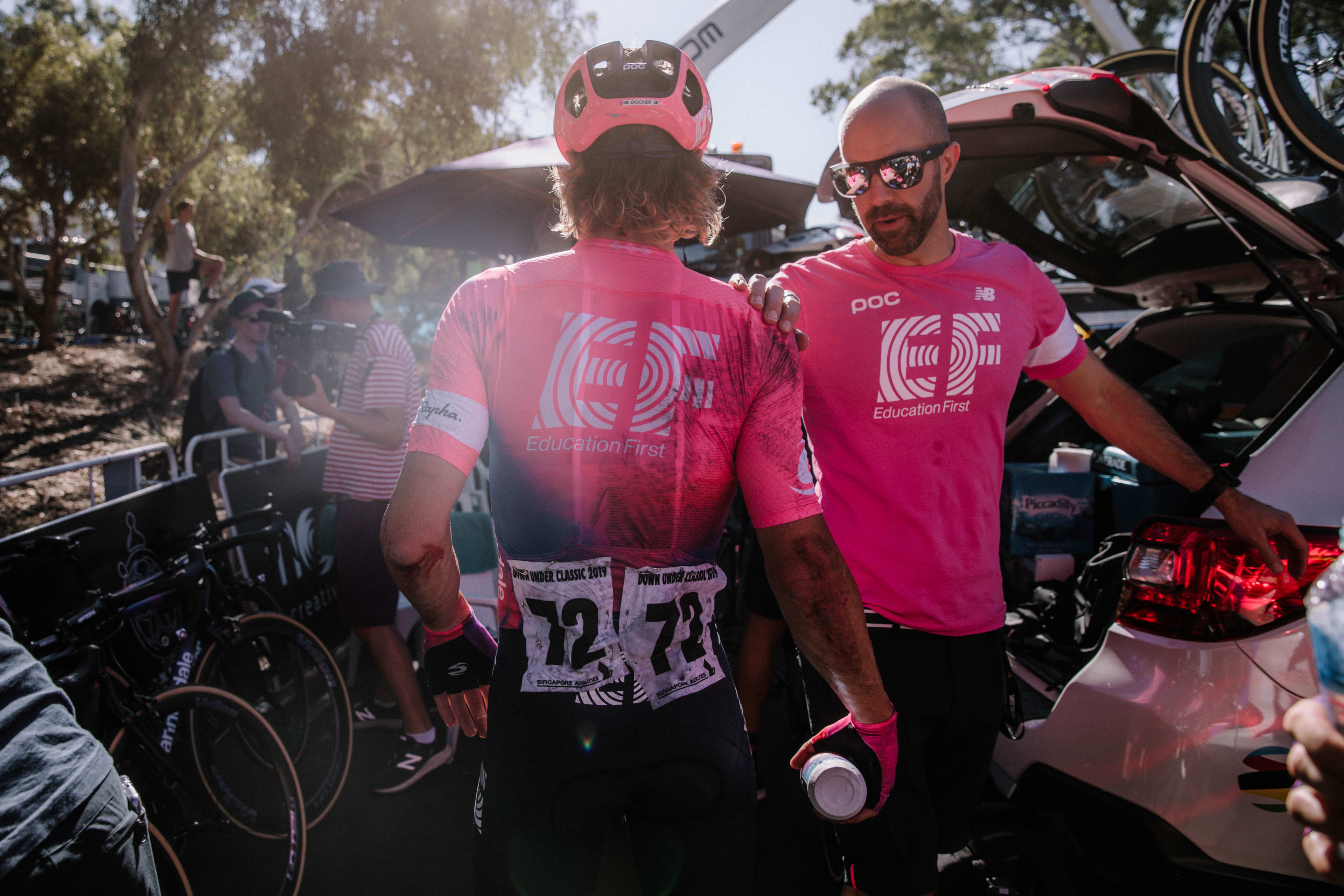
For most athletes, the pursuit of an active and competitive lifestyle is rooted in a desire for greater health and wellbeing. But in some instances, health and wellbeing are occasionally sacrificed for winning!
"Low Sugar For Endurance Athletes" was written by Dr. Kevin Sprouse. Dr. Sprouse is a team physician for the Ef Education - Easy Post Pro Cycling Team. He has a degree in exercise science and has board certifications in both Sports Medicine and Emergency Medicine. He practices at Podium Sports Medicine in Knoxville, TN.
For many years it has been widely accepted that endurance athletes require a diet high in carbohydrates. Complex, simple, straight-up sugar…carbs were the fuel that fed the competitive muscle. Recently though, there has been a shift away from this “traditional” thinking. As a physician who cares for both the health and performance of many elite and professional endurance athletes, this has been a recurring conversation in my office for the past few years.
I employ two points of view when I address the merits of a Low-Sugar diet for endurance athletes. The first is the overall health of the individual. The second is the performance level of the athlete. While these are not mutually exclusive, the nuances surrounding each discussion are different.
For most athletes, the pursuit of an active and competitive lifestyle is rooted in a desire for greater health and wellbeing. But in some instances, health and wellbeing are occasionally sacrificed for winning!
Everyone knows that eating a ton of sugar is unhealthy, but for many years we’ve believed that you could get away with it if you exercised enough. It was thought that a daily 100-mile ride or 10-mile run would cancel out the negative effects of added sugar. We’re now learning that combining lots of exercise with loads of sugar is not a recipe for a healthy or performance-driven lifestyle.
Despite mounting evidence supporting this change in practice, many coaches, trainers, athletes, and physicians see this as a controversial issue or are entirely unaware of its importance. Some argue that large, academic studies are lacking, but there is a body of work that supports this change in thinking. In actuality, as with most things in medicine, it’s very individual. No large, population-based study can be applied directly to your individual needs. Some athletes are able to physiologically handle higher sugar intakes without developing health concerns, but that is the exception to the rule.
With this in mind, I put many of my patients to the test.
Simple blood work will show that most “very active” people with long-standing diets high in simple carbohydrates still show elevated fasting blood sugar levels, elevated HgbA1c (a measure of a person’s average blood sugar over time), high triglycerides, and elevated fasting insulin. You know what that adds up to? A bona fide, highly inflammatory “pre-diabetic” state! This is not the “picture of health” that you might expect to see in a 30-year-old endurance athlete!
I’ve heard a lot of people point out that training and racing for an Ironman or the Tour de France isn’t so healthy in the first place. While that’s probably true, I’d caution against only considering performance when building your diet as an amateur (or pro) athlete.
Speaking of performance, if you’ve ever “bonked”, you’ve experienced what happens when your body depletes its glycogen (aka carbohydrate) stores. Your body is able to store roughly 2000 calories worth of carbohydrate, which you’ll burn through pretty quickly. This leaves athletes in a vicious cycle requiring a constant flow of sugary gels and sugary drinks to keep your energy levels “up”.
To avoid this performance limiter, I’ve worked with athletes to show them how to shift their metabolism toward a greater utilization of fat and decreased reliance on sugar.
Using fat as fuel can be tough to test when you’re so accustomed to running primarily on carbohydrate, but when compared to glycogen, your body has so much more fat stored to use as energy! The trick is training your body to access those fat stores at increasingly higher metabolic intensities, shifting your body’s fueling preference from carbohydrate to fat. This is accomplished by routinely exercising on a diet of fewer carbohydrates and increased healthy fats.
The argument from athletes, and some sports scientists, is that performance at high intensity is still going to require carbohydrate. They’re right. If you’re a 1500-meter runner, you’re stuck burning mostly glycogen.
During your marathon, 100-mile bike race, or Ironman, your intensity level is largely sub-threshold. For these events, you want to be efficient at burning primarily fat for the vast majority of your time competing. Of course, you’ll have intense sections when you hit a hill, cover a breakaway, or need to pick up the pace toward the end. That’s when you’ll draw on those glycogen stores and perhaps use a gel (or maple syrup) for a quick burn. Remember that you don’t need to pour sugar into your body throughout your workout, and certainly not throughout your day. For the sake of wellness and your performance, lower your intake of sugar and reap the rewards of health and endurance.
Here are some things to consider when making the switch and testing this strategy for yourself:
Don’t do try a low-sugar diet during an important period of intense training and/or racing! As with any change (running shoes, bike saddle, etc.), you have to account for some time to acclimate.
Don’t feel like you need to immediately go carb-free! Take stock of your current diet. Spend a few days logging your normal intake of protein, carbohydrate, and fat. Once you have an idea of the composition of your diet, then you have a baseline from which you can make reasonable and informed changes. For instance, if you currently consume 75% of your calories as carbohydrate, make an effort initially to get that closer to 50%. Unless you are already deficient in protein intake, you’ll not want to replace that 25% of your calories with proteins. Instead, focus on high-quality fats…fish oil, avocado, MCT oils, coconut oil, olive oil, etc.
A simple step is to do carb-free breakfasts. Instead of cereal, toast, OJ, and fruit, start your day with a big glass of water, some eggs, an avocado, salsa, and perhaps a slice of bacon. Seems like an indulgence, not a diet!
Start to utilize fasted workouts to help train your body to access those fat stores. These are done first-thing in the morning, before the intake of any calories. You can have water and black coffee or tea, but no sugar or dairy. Initially, plan on a 30-50 minute run or spin at a relatively low intensity. The duration of this will grow as you become accustomed to making this a regular part of your routine.
It's critical to know that the transition may be rough. You may feel a bit sluggish during your first week or two. If, after some time, you are not coming around, you can add in some carbs and then plan to wean off them slowly. This is a lifestyle change, not a fad diet! Some people feel fantastic after only a few days. Others take weeks to sort it out. It’s individual.
For many, the concept of “train low, race high” can work well too. This refers to doing much of your training while consuming a low-sugar diet. When it comes time for competition, you throw in some added carbs to stoke the fire for the high-intensity of racing.
Most importantly, I’d suggest seeking the help of a pro. A well-versed sports medicine doc can help you with testing that can determine your individual needs. These tests may include blood tests, VO2 testing, and lactate profiling. Another fantastic resource would be a dietician who is comfortable and accustomed to working with athletes. A little expertise can go a long way in helping you succeed!
